As governments look at legalizing the first cannabis cafes this year in Canada, some activists are questioning whether their edible-only approach is viable socially and financially.
Last month, the city of Edmonton and the province of Ontario took steps to open up cannabis business opportunities, which included consumption venues, lounges and special permits to consume at outdoor festivals and concerts.
But due to strict smoking bans in both jurisdictions, policymakers are only considering the sale of cannabis-infused food and drink at the venues instead of Amsterdam-style smoking cafes.
“In my opinion, I don’t think an edible-only lounge would work. I don’t think there would be a lot of interest,” said Dana Larsen, a veteran activist for cannabis reform. “I just don’t see it being enough to sustain a full on social setting where everyone’s sitting around eating their edibles, and it’s not really that financially viable either.”
Larsen said Canadian lawmakers have unrealistic fears about the harms of cannabis smoke and that edible-only cafes would keep Canadians confined to smoking pot in alleys, parks and other public places.

Cannabis consumers share a joint at San Francisco’s Barbary Coast smoke lounge. Image courtesy of Barbary Coast
Antoine Vautherot, general manager at Vancouver’s New Amsterdam Cafe, said the venue is the oldest cannabis smoking lounge in North America and has remained popular since it opened in 1998, despite operating outside federal law.
The Quebec native said he sees “crazy amounts” of foot traffic each day and a lot of tourists, large groups and regulars. For Vautherot, they come to the cafe specifically for the social aspects of sharing joints and good conversation.
But an edible-only cafe might have a hard time attracting the same volume of interest, he added.
“I don’t think you can just open a place and put a brownie and gummies on your menu and expect it to be a successful business,” Vautherot said.
Read more: Edmonton will legalize cannabis cafes this year, city councillor says
Cannabis gets lumped with anti-smoking laws
Both advocates said even with infused beverages and edibles becoming legal last year, smoking is still the most popular way to consume pot.
According to Statistics Canada, smoking remains the most common way to consume cannabis, with around two-thirds of consumers choosing that method in 2019.
Despite being popular, Edmonton councillor Mike Nickel told Mugglehead last month the city would never support smoking or vaping pot indoors.
But Nickel said he is confident edible-only cafes could make money and create jobs, and his goal is to get them legal this year.
Currently, no type of indoor public cannabis consumption is legal in Canada, and Nickel said he is looking at different business models to present to the Alberta government to develop new regulations. The provincial government would then need to revise the Gaming, Liquor and Cannabis Act before municipalities could approve business licences.
Three of those models were presented in a report to Edmonton city council on Feb. 26. In the first scenario, patrons could purchase cannabis edibles at a standalone location, another would allow edibles to be sold with alcohol at a licensed venue, and in a third option edibles would be sold at a location licensed to serve alcohol, but in a separate room.
In Ontario the government closed its month-long public consultation on legalizing consumption venues March 10.
While Ontario hasn’t provided a time frame on cannabis policy changes, the province noted that smoking and vaping wouldn’t be an option as per the Smoke-Free Ontario Act.

Cannabis advocate Dana Larsen says edibles are the only thing that sends Vancouver 4/20 revelers into hospitals, albeit with non-serious health conditions. Image via Deposit Photos
Edibles can be dangerous, and cannabis isn’t tobacco, Larsen says
But Larsen said encouraging people to eat cannabis instead of smoking it, ultimately isn’t the wisest public health policy.
The longtime activist is also the founder of Vancouver’s annual outdoor 4/20 festival. He said at last year’s event around a dozen ended up in the hospital out of the 65,000 attendees, and each case was a result of people eating too many edibles.
“Although cannabis is very safe in all of its forms, eating cannabis is the most dangerous way to take it,” he said.
Because each person reacts differently to edibles, and it takes up to an hour for THC’s psychoactive effects to kick in, Larsen said it’s difficult to know what’s too much or not enough.
And from a business standpoint, he said you might only make a couple dollars per edible and then each guest would be glued to their chair for hours, which wouldn’t be profitable.
Because he sees the demand for social smoking venues will stay strong, Larsen said the Canadian government will eventually need to support the will of the people.
Larsen says governments need to be educated more that cannabis smoke is different, and safer, than tobacco smoke.
He points to research done by Dr. Donald Tashkin, professor emeritus of medicine at UCLA, who has been studying weed and its effects on lungs for more than 30 years.
Despite the fact that cannabis contains carcinogens, Tashkin’s research shows that weed is safer to smoke than tobacco, and the high risks of cancer and other pulmonary disease that are present with tobacco are far lower for pot.

People visit a cannabis coffee shop in Amsterdam, Netherlands. The city was the original jurisdiction to legally sell cannabis for personal consumption in public settings. Image via Deposit Photos
Cannabis 2.0 presents new consumption opportunities
But Larsen said legalizing some form of public consumption is still a step in the right direction, and admits a restaurant that offers an entire cannabis-infused dining experience could be a successful model.
Cannabis retailer Fire & Flower (TSX: FAF) pitched the idea for infused dining to Edmonton city council the day Nickel’s report was being presented.
Nathan Mison, Fire & Flower’s vice president of government and stakeholder relations, said new technology presents opportunities for new consumption concepts.
Read more: Cannabis-infused dining flourishes despite being illegal
He said there’s room within federal cannabis 2.0 regulations to allow for unique cannabis-infused venues that would help break down stigmas, normalize pot and disrupt the still-thriving illicit market.
“It’s not about smoking jays with long-haired hippies that live in parents’ basements,” Mison said. “It’s going out for a night with the girls and having a cannabis-infused cocktail, or going out with friends and having a cannabis-infused meal, and not drinking alcohol but trying food with cannabis instead.”
Fire & Flower is based in Edmonton and Mison, who also chairs the 54-member Alberta Cannabis Council, said the city and province could be a leader in moving the industry forward.
He believes cannabis cafes will become legal this year, but it will take time to form regulations because all three levels of government are involved and the whole world is watching.

Edmonton-based Fire & Flower is pushing for legal cannabis bars and cafes that would attract tourists and normalize cannabis. Image via Deposit Photos
While some U.S. cities and Alaska have legalized public consumption lounges, Mison said nations around the world look at Canadian policy as the model to follow because cannabis is legal at the federal level, unlike in the U.S.
That means the proposals from his company and Coun. Nickel have to be thoroughly researched to gain approval from Health Canada and the Alberta government.
Mison said the industry has been developing nano emulsion technology that gives companies better control over cannabinoids like THC and CBD that are infused into edible products. That is key in providing patrons with precise dosing, faster onset times and an overall more controlled experience.
Under Health Canada rules, edibles must be secured in child-resistant containers with large warning labels and contain a maximum of 10 milligrams of THC. Also, an excise stamp is required on any cannabis product containing more than 0.3 per cent THC.
To get around that, Mison said companies could sell customers a THC-infused powder distillate or a liquid isolate in a 10 milligram package that meets federal regulations. The guest could then add in how much they like to a dish or beverage being served.
Canada needs to regain its first-mover advantage
Mison said ideas are still being developed and it will be important to prove to politicians that public cannabis consumption can be safe. If the legal industry wants to disrupt the illicit market, public consumption is needed, he added.
The vast majority of the world is fascinated by cannabis tourism, Mison said, and giving the public the option for an infused restaurant, bar or cafe will put Canada on the map.
While the industry and government bungled cannabis 1.0, Mison said this is Canada’s chance to regain its first-mover advantage.
“The illicit market is kicking our ass, our products are more expensive, the quality is different, there’s not as many stores as you want, so the idea of an infused restaurant, or bar, or cafe would normalize and help break down the illicit market.”
Mison said Edmonton city council will resume talks on cannabis cafes on April 22.
Read more: Policymakers should look south to improve Canada’s cannabis retail market, expert says
Top photo of Vancouver’s long-standing New Amsterdam Cafe cannabis smoking lounge courtesy of Clayton Perry Photography
jared@mugglehead.com
@JaredGnam

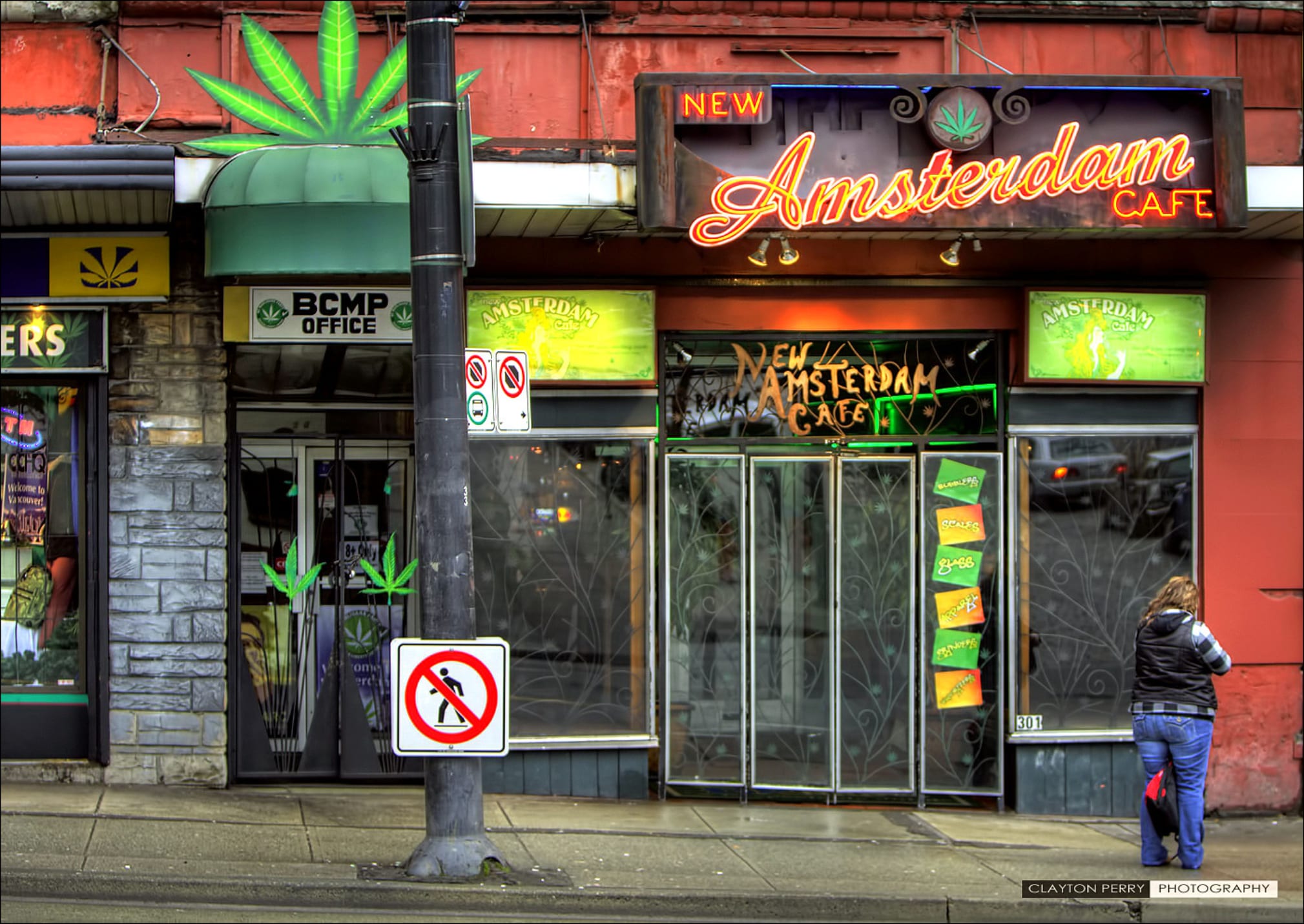





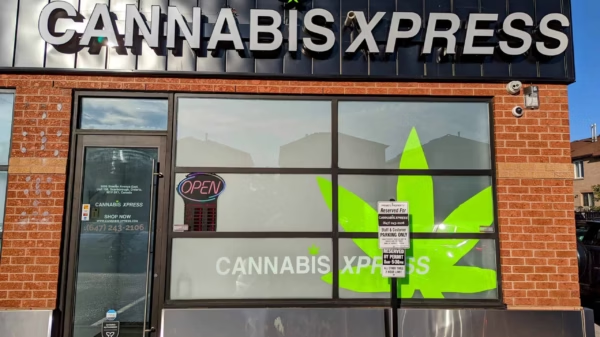
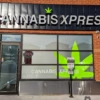
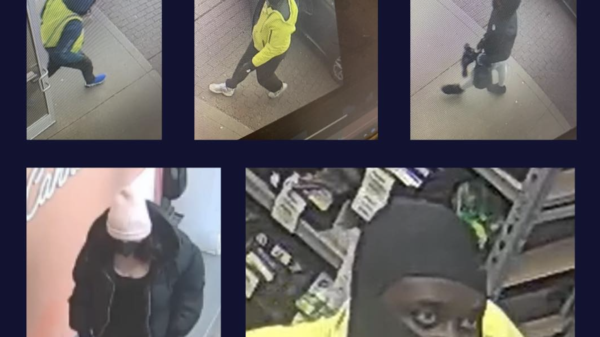

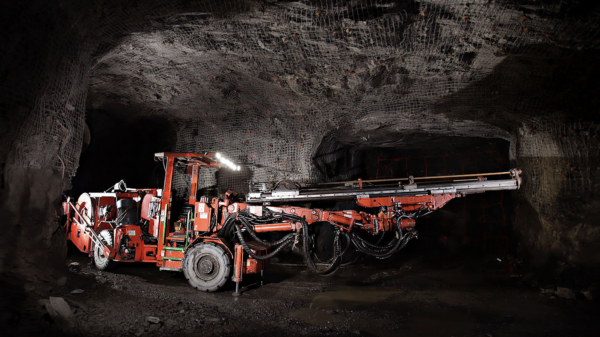
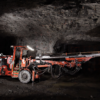


Joseph
November 7, 2024 at 2:54 am
I hope it does, and it would become a safe space for cannabis consumers.